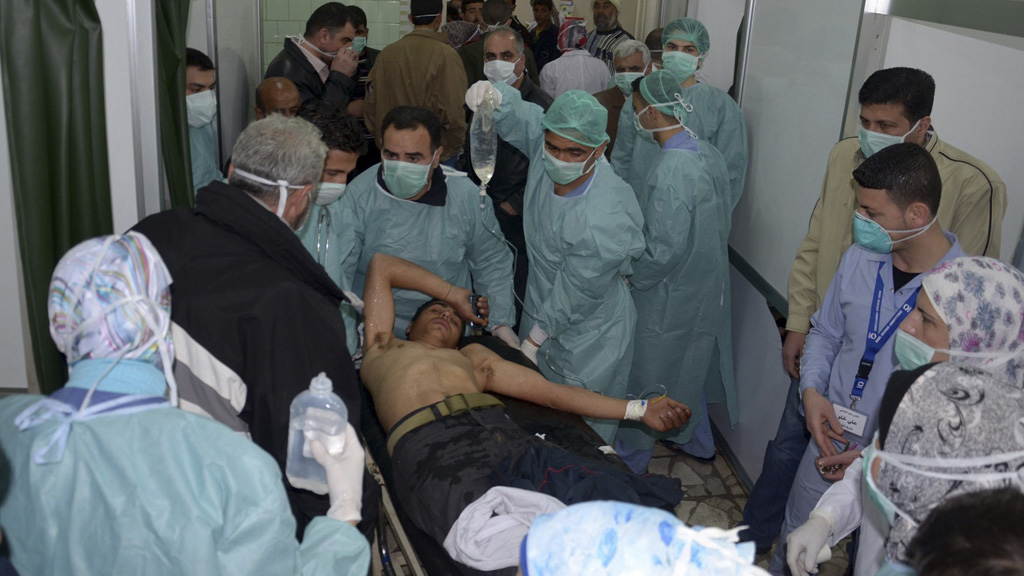UN to inspect Syrian chemical weapons attack sites
UN experts will travel to Syria as soon as possible to investigate chemical weapons attacks in three locations following months of negotiations with Bashar al-Assad’s government.

UN spokesman Martin Niserky said the chemical weapons investigation had been given the go-ahead due to an “understanding reached with the government of Syria” during a visit by the UN to Damascus last week.
The regime had originally invited the UN in to investigate a chemical weapons attack at Khan al-Assal near Aleppo – but then balked at the UN’s demands that it investigate other alleged attacks.
Photo gallery: #Withoutwords - Syria's conflict art
Chemical weapons experts, led by Ake Sellstrom, will now visit the Khan al-Assal site – which was captured by rebels last week and is under attack from government forces – as well as a further two, as yet undisclosed, locations. Both the rebels and the government have blamed the other side for the Khan al-Assal incident.
As it is more than four months since the Khan al-Assal incident, there are question marks over what evidence will remain at the site.
It is understood the other two sites will be chosen based on evidence given to the UN by governments, doctors, alleged victims and others.
The UN will investigate if attacks took place, and if so, what chemical agents were used. It will not, however, attribute blame.
‘Clarification’
Western countries have already condemned Assad’s government after saying they had evidence that regime forces had used chemical weapons.
Britain and France initially claimed there was evidence that Assad was using chemical weapons, and then in June the United States said it had “conclusive” evidence.
Interactive: Damascus - chemical weapons capital
The chemical weapons issue has prompted the three countries to support provide military equipment and arming rebel groups. Russia, on the other hand, has said it has evidence that it is rebel groups that have been using such weapons.
UN Middle East envoy Robert Serry told the UN Security Council last week there have been 13 reports of alleged chemical weapons use in Syria. The UN has stressed that it should have access to the sites were all 13 of these alleged attacks were carried out.
“The secretary-general remains mindful of other reported incidents, and the mission will also continue to seek clarification from the member states concerned,” Mr Nesirky said on Wednesday.